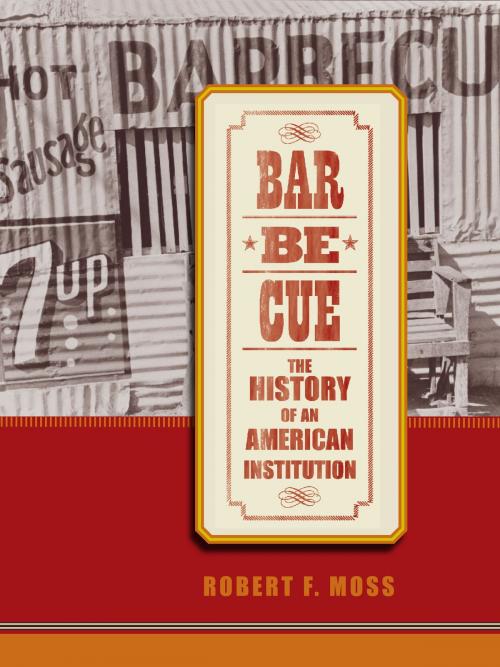| Author: | Robert F. Moss | ISBN: | 9780817387075 |
| Publisher: | University of Alabama Press | Publication: | June 30, 2014 |
| Imprint: | University Alabama Press | Language: | English |
| Author: | Robert F. Moss |
| ISBN: | 9780817387075 |
| Publisher: | University of Alabama Press |
| Publication: | June 30, 2014 |
| Imprint: | University Alabama Press |
| Language: | English |
The history of barbecue in the United States has until now remained virtually untold. Barbecue has a long, rich history—a history that formerly could be found only through scattered references in old letters, journals, newspapers, diaries, and travel narratives until this book was written.
Americans enjoy reading about barbecue almost as much as they love eating it. Books on the subject cover almost every aspect of the topic: recipes, grilling tips, restaurant guides, pit-building instructions, and catalogs of exotic variants such as Mongolian barbecue and Indian tandoor cooking. Despite this coverage, the history of barbecue in the United States has until now remained virtually untold.
Barbecue: The History of an American Institution draws on hundreds of sources to document the evolution of barbecue from its origins among Native Americans to its present status as an icon of American culture. This is the story not just of a dish but of a social institution that helped shape the many regional cultures of the United States. The history begins with British colonists' adoption of barbecuing techniques from Native Americans in the 16th and 17th centuries, moves to barbecue's establishment as the preeminent form of public celebration in the 19th century, and is carried through to barbecue’s iconic status today.
From the very beginning, barbecues were powerful social magnets, drawing together people from a wide range of classes and geographic backgrounds. Barbecue played a key role in three centuries of American history, both reflecting and influencing the direction of an evolving society. By tracing the story of barbecue from its origins to today, Barbecue: The History of an American Institution traces the very thread of American social history.
The history of barbecue in the United States has until now remained virtually untold. Barbecue has a long, rich history—a history that formerly could be found only through scattered references in old letters, journals, newspapers, diaries, and travel narratives until this book was written.
Americans enjoy reading about barbecue almost as much as they love eating it. Books on the subject cover almost every aspect of the topic: recipes, grilling tips, restaurant guides, pit-building instructions, and catalogs of exotic variants such as Mongolian barbecue and Indian tandoor cooking. Despite this coverage, the history of barbecue in the United States has until now remained virtually untold.
Barbecue: The History of an American Institution draws on hundreds of sources to document the evolution of barbecue from its origins among Native Americans to its present status as an icon of American culture. This is the story not just of a dish but of a social institution that helped shape the many regional cultures of the United States. The history begins with British colonists' adoption of barbecuing techniques from Native Americans in the 16th and 17th centuries, moves to barbecue's establishment as the preeminent form of public celebration in the 19th century, and is carried through to barbecue’s iconic status today.
From the very beginning, barbecues were powerful social magnets, drawing together people from a wide range of classes and geographic backgrounds. Barbecue played a key role in three centuries of American history, both reflecting and influencing the direction of an evolving society. By tracing the story of barbecue from its origins to today, Barbecue: The History of an American Institution traces the very thread of American social history.















